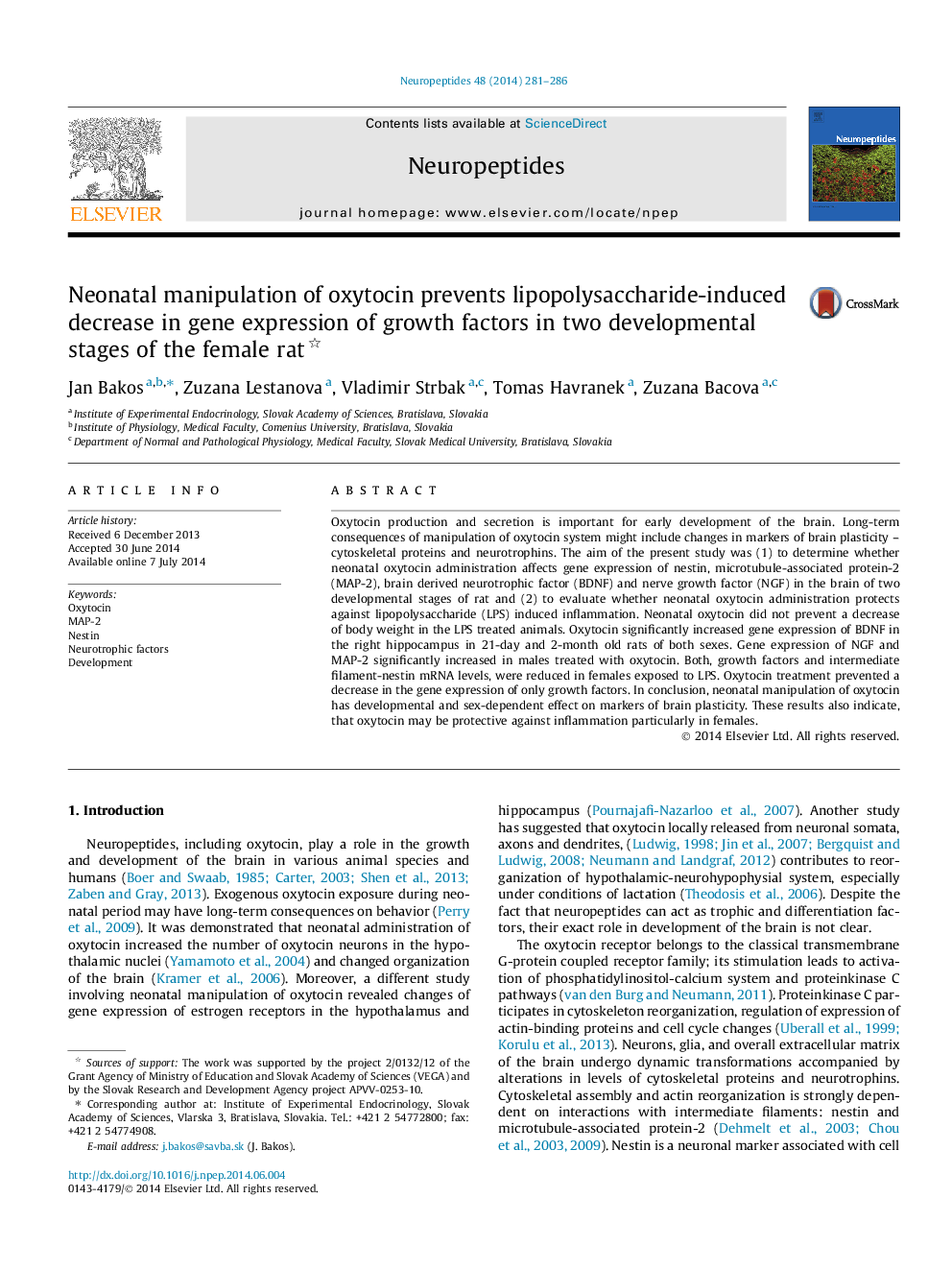| Article ID | Journal | Published Year | Pages | File Type |
|---|---|---|---|---|
| 2808034 | Neuropeptides | 2014 | 6 Pages |
Abstract
Oxytocin production and secretion is important for early development of the brain. Long-term consequences of manipulation of oxytocin system might include changes in markers of brain plasticity - cytoskeletal proteins and neurotrophins. The aim of the present study was (1) to determine whether neonatal oxytocin administration affects gene expression of nestin, microtubule-associated protein-2 (MAP-2), brain derived neurotrophic factor (BDNF) and nerve growth factor (NGF) in the brain of two developmental stages of rat and (2) to evaluate whether neonatal oxytocin administration protects against lipopolysaccharide (LPS) induced inflammation. Neonatal oxytocin did not prevent a decrease of body weight in the LPS treated animals. Oxytocin significantly increased gene expression of BDNF in the right hippocampus in 21-day and 2-month old rats of both sexes. Gene expression of NGF and MAP-2 significantly increased in males treated with oxytocin. Both, growth factors and intermediate filament-nestin mRNA levels, were reduced in females exposed to LPS. Oxytocin treatment prevented a decrease in the gene expression of only growth factors. In conclusion, neonatal manipulation of oxytocin has developmental and sex-dependent effect on markers of brain plasticity. These results also indicate, that oxytocin may be protective against inflammation particularly in females.
Related Topics
Life Sciences
Biochemistry, Genetics and Molecular Biology
Endocrinology
Authors
Jan Bakos, Zuzana Lestanova, Vladimir Strbak, Tomas Havranek, Zuzana Bacova,
